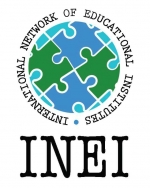Education for Sustainable Development

About the IALEI research theme 2009
Recommendations
Climate change is the greatest public policy issue of out time. If humanity is to respond to the challenges, education has a key role to play in promoting understanding and helping individuals, society and governments to make informed choises. In order to promote a reorientation IALEI has agreed on the following eight recommendations With its recommendations, IALEI points out that an ambitious venture for Sustainable Development is necessary if, as a society, we are to prepare citizens for handling climate issues, and the uncertainty that is associated with them. For centuries the logic in the educational system has been that we must impart and teach children about certainties. Today the great challenge is, however, related to uncertainty, dilemmas and ethical choices. This is precisely what Education for Sustainable Development is about. Chris Husbands, Dean at the Institute of Education London, explains why the climate issues require new skills and education: “Basic science behind climate changes is clear: the earth is heating up as a result of emissions of large amounts of CO2 into the atmosphere. No one doubts this. But at the same time climate change continues to be more unpredictable and complex which makes it difficult to decide what is going to happen in the future. The implication is such that climate changes are just as much an educational problem as a scientific problem”, says Chris Husbands.
Conferences
The annual IALEI meeting and conference was held 17-19 August 2009, hosted by the College of Education, Seoul National University in South Korea. Due to the UN’s Copenhagen Climate Change Summit in Copenhagen, Denmark, in December 2009, the recommendations were first presented to the public in connection to a press conference that took place in Copenhagen, 11 December 2009. Watch the video from the event in Copenhagen.

Report
The report presents the results of IALEI’s cross-national analysis providing a broad international overview of the initiatives taken and the problems involved in achieving the goals of the United Nations Decade of Education for Sustainable Development 2005-2014. Download report (PDF).
IALEI researchers engaged in the 2009 theme
The names of the reserchers engaged in the 2009 project are:
Australia, Melbourne Graduate School of Education, University of Melbourne: Dr. Dianne Chambers
Brazil, Faculty of Education, University of Sao Paulo: Professor, Dr. Pedro Roberto Jacobi, Luciana Ferreira da Silva, Samia Nascimento Sulaiman, Tiago Costa Nepomuceno and Lesly Monteiro Ratinho
Canada, Ontario Institute for Studies in Education, University of Toronto: Ms. Joanne Nazie, Professor Erminia Pedretti, Professor John Wallance, David Montemurro and Dr. Hilary Inwood
China, School of Education, Beijing Normal University: Associate Professor Yi Jin and Wu Ping
Denmark, Department of Education, Aarhus University: Professor Søren Breiting, Professor Jeppe Læssøe, Professor Karsten Schack and Simon Rolls
South Africa, School of Education, University of Cape Town: Dr. Kevin Winter
South Korea, Department of Education, Seoul National University: Professor Jongwook Kim, Chankook Kim, Namsoo Kim, Yisung Kim and Heekyng Kim
Singapore, National Institute of Education, Nanyang Technological University: Professor Kim-Chuan Goh, Kim Chwee Daniel Tan, Chew Hung Chang and Giok Ling Ooi
UK, Institute of Education, University of London: Dr. Nicole Blum and Professor Chris Husbands
USA, School of Education, University of Wisconsin Madison: Assistant Professor Noah Feinstein
Chair of this IALEI research team is Professor Jeppe Læssøe, Department of Education, Aarhus University.
